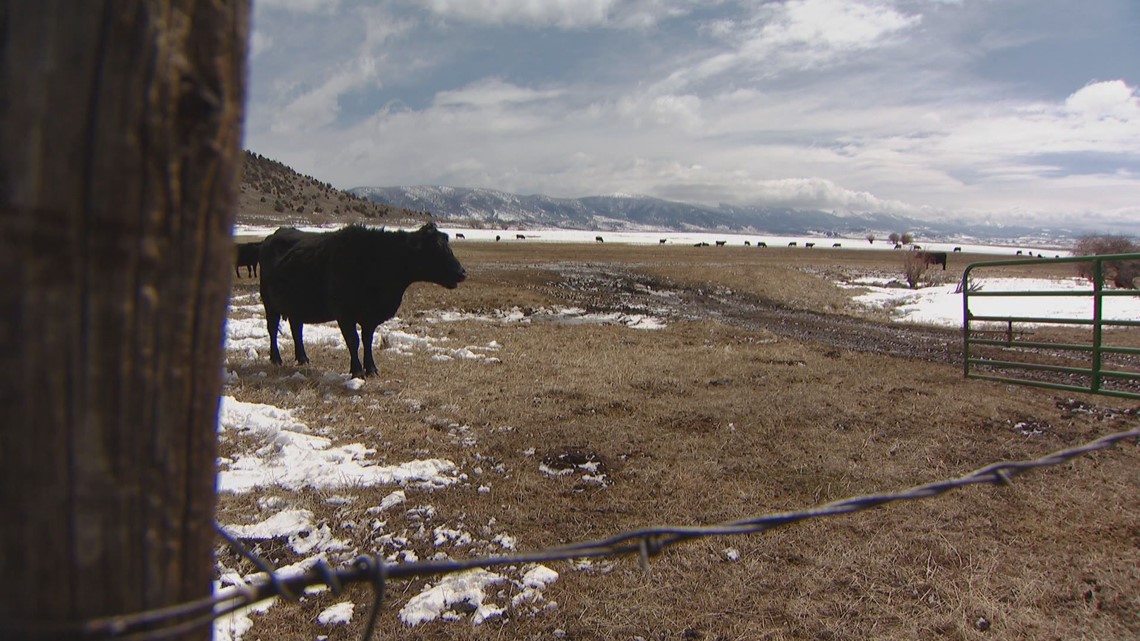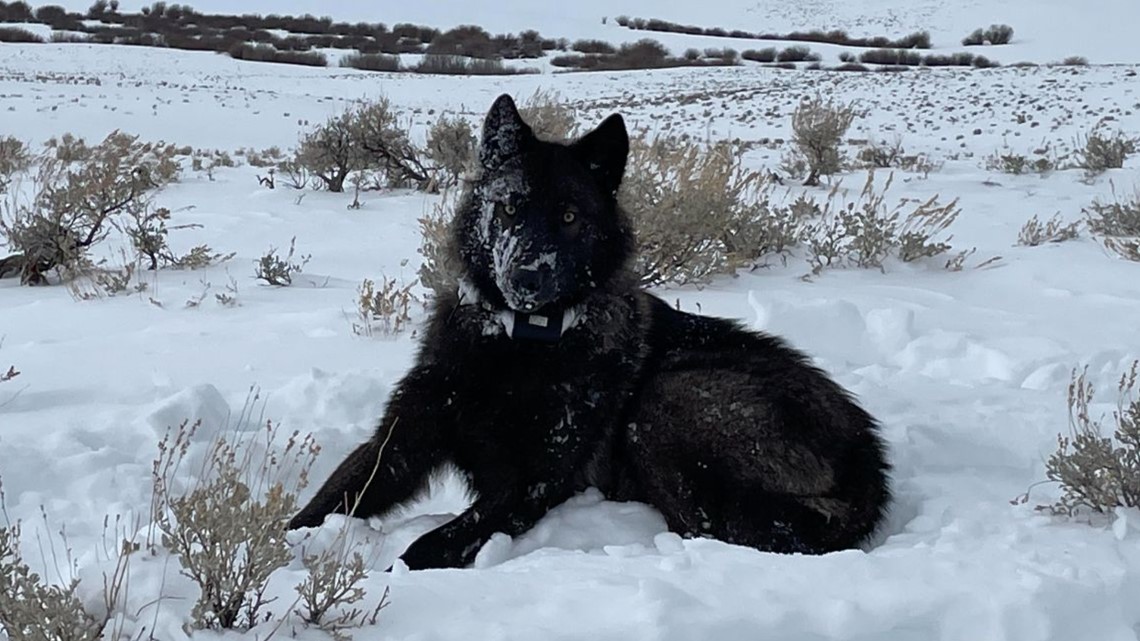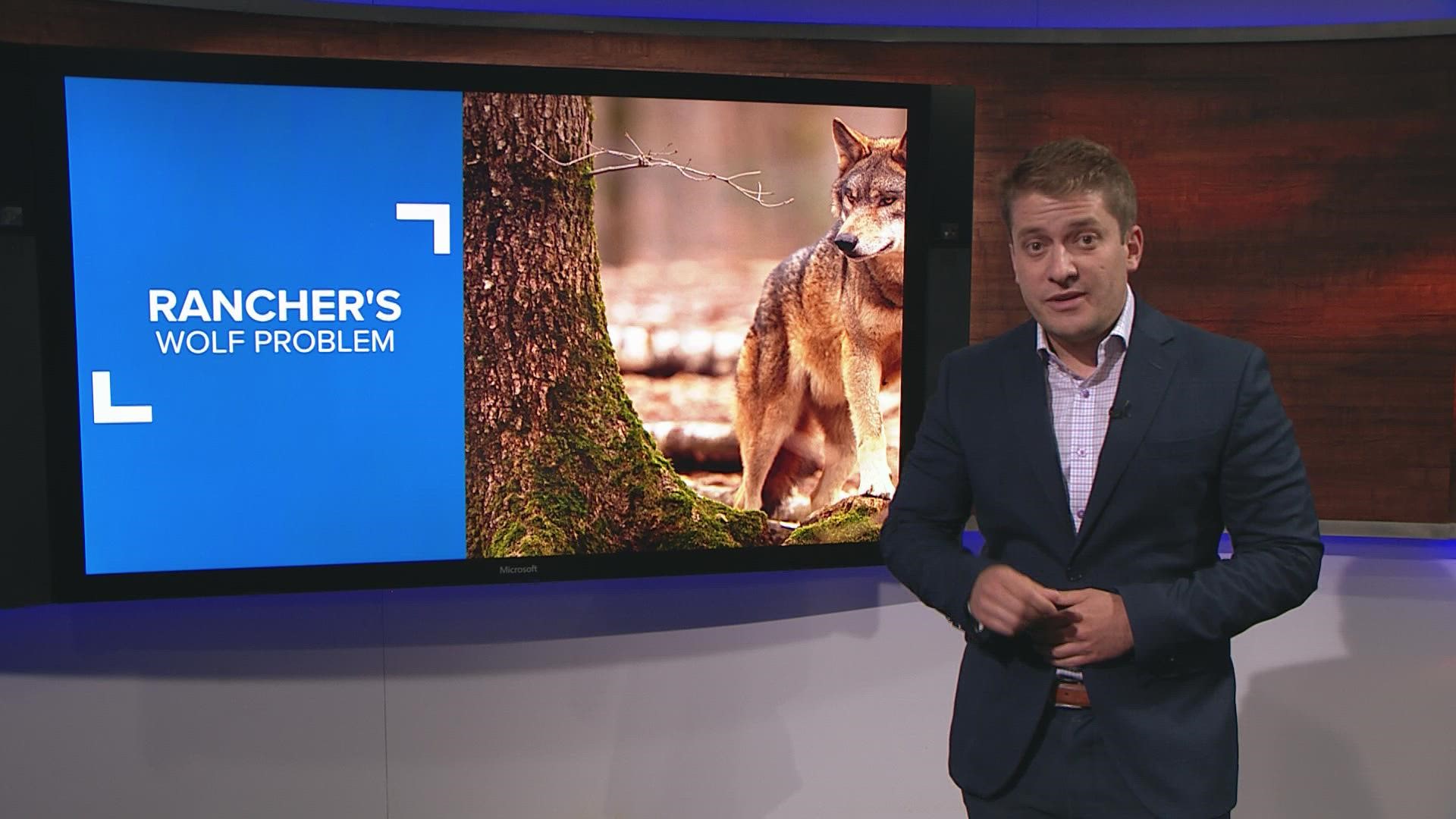JACKSON COUNTY, Colorado — Don Gittleson doesn’t get much sleep these days. Staying up all night to keep a watch out for wolves on his ranch seems to be the only solution he’s found to protect his cattle.
"I’ve been staying up for most of the night. I only get an hour or two of sleep at a time," Gittleson said. "These wolves are losing their fear of people."
The wolves migrated down from Wyoming and had pups. This winter, they started attacking and killing livestock outside of Walden.
In Colorado, the wolves are considered an endangered species and can’t be killed unless it's in self defense.
In states like Wyoming, wolves are not a protected species. That means ranchers up there can shoot and kill a wolf and not face any consequences.
Here in Colorado, the penalty for killing a wolf is up to $100,000 and a year in jail. The person would also lose their hunting license privileges for life.


Back in December, Gittleson found his first cows that fell victim to the wolves. The following months have been spent trying out different tactics to try to keep them away. Flags and strobe lights didn’t work. Then the state gave him some donkeys to protect his cattle. That hasn't seemed to work either.
Just last week, he said, the wolves killed another calf.
"We ended up with two cows and two calves through a fence. One of those calves was dead," Gittleson said. "When I got there, two of the wolves, the pups, were still engaged with the cow, so then I started to chase them. I chased them for a distance and then I saw the male."
The Colorado Parks and Wildlife Commission passed new regulations this year that allow people to haze wolves that have naturally migrated into the state. The hope is wolves will become more scared of humans and stay away from ranches.
RELATED: Ranchers, wildlife officers work on solutions after wolves kill cows and dog in Jackson County
While the state pays ranchers for the livestock they’ve lost to wolves, Gittleson is worried about what comes next.
"My endgame on this would be to stop the introduction of wolves," Gittleson said.
Colorado will soon begin reintroducing wolves back to the state after voters passed a ballot initiative in 2020. The plan to reintroduce the wolves must be completed by the end of 2023.
SUGGESTED VIDEOS: Animals and Wildlife



